In August 1945, Japan became the first, and so far the only, country to experience a nuclear attack. The atomic bombs dropped by the United States instantly turned Nagasaki and Hiroshima into ashes and killed over 200,000 people. Seventy-two years later, the specter of nuclear weapons still threatens our planet.
As the number of the hibakushas, or atomic bomb survivors, decrease due to old age, how are we remembering their stories, and which paths are we choosing to take? In her latest project, 1945, Brooklyn-based documentary photographer Haruka Sakaguchi took portraits of hibakushas she met in Nagasaki and Hiroshima. She then asked her subjects to write a message for future generations. Below is a selection of her work.
Yasujiro Tanaka
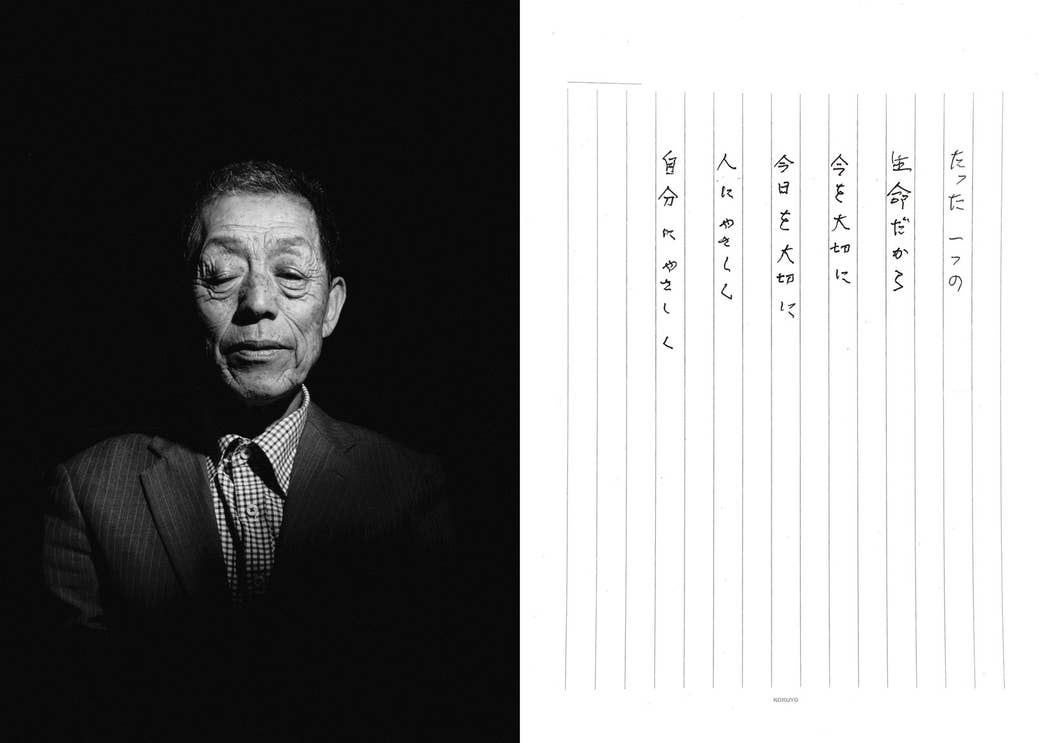
You are only given
One life
So cherish this moment
Cherish this day
Be kind to others
Be kind to yourself
Shigeko Matsumoto
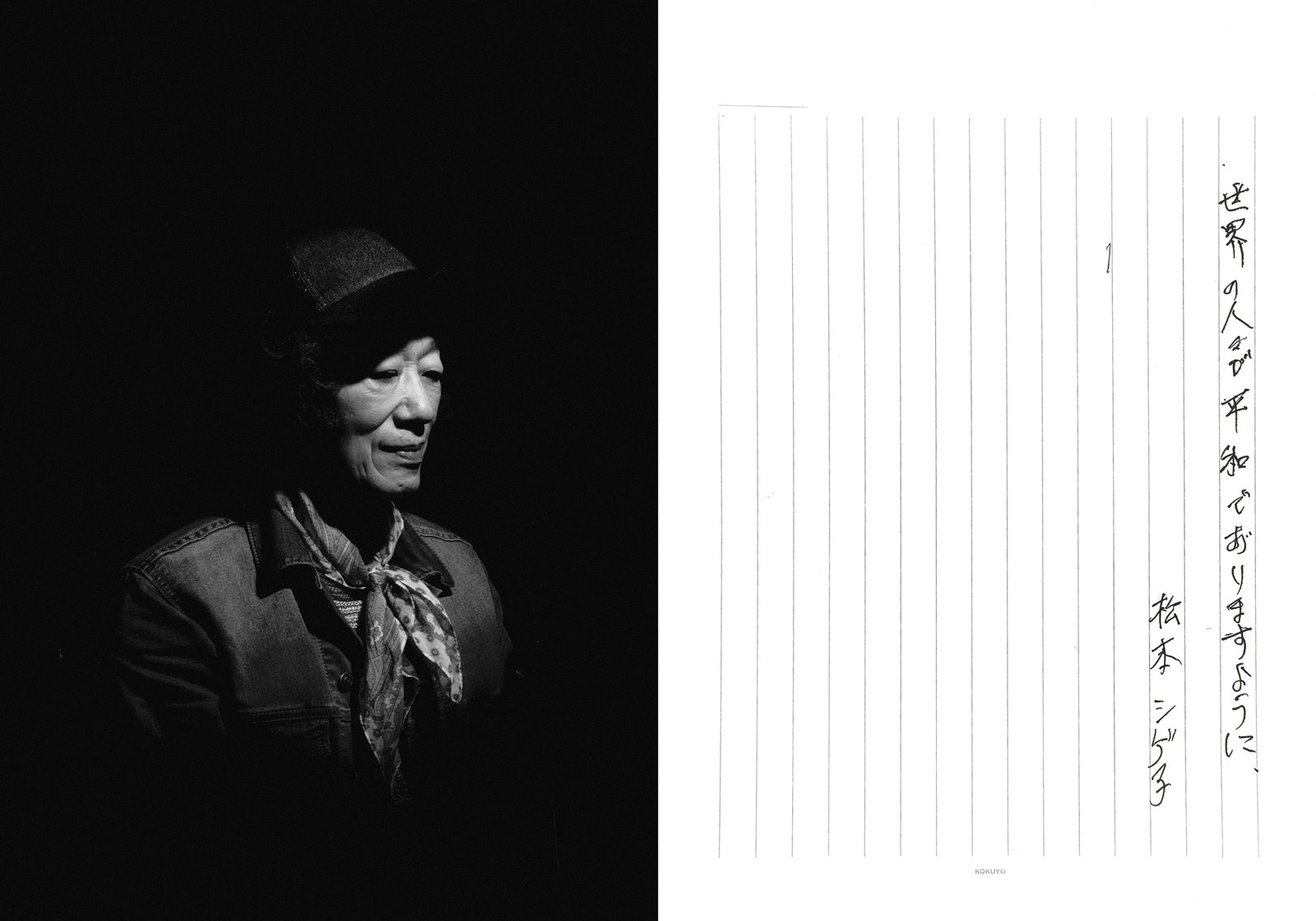
I pray that every human being finds peace.
Michiko Yagi
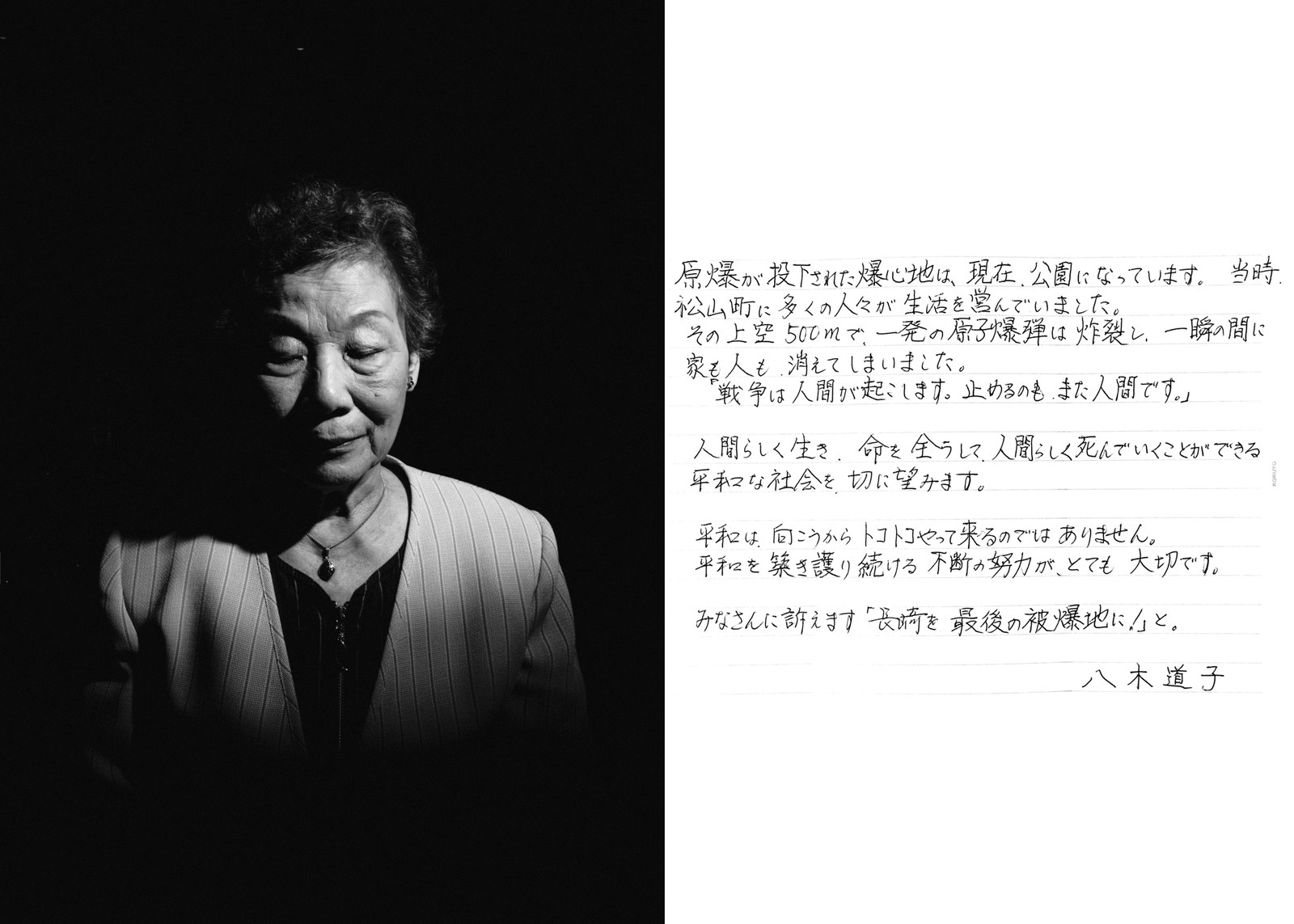
The site of the bombing — Matsuyama-machi — is now a pristine park. Back then, however, it was a bustling town where many people lived and worked.
A single atomic bomb detonated 500 meters above this town, destroying everything underneath it. Homes and families disappeared in an instant.
Humans cause war. Thus, only humans can prevent it.
I long for a peaceful society where everyone can live with dignity, and die with dignity.
Peace is not something that we passively wait for. Peace is something that we must seek out and cultivate.
Dear reader — please make Nagasaki the last atomic bomb site.
Fujio Torikoshi
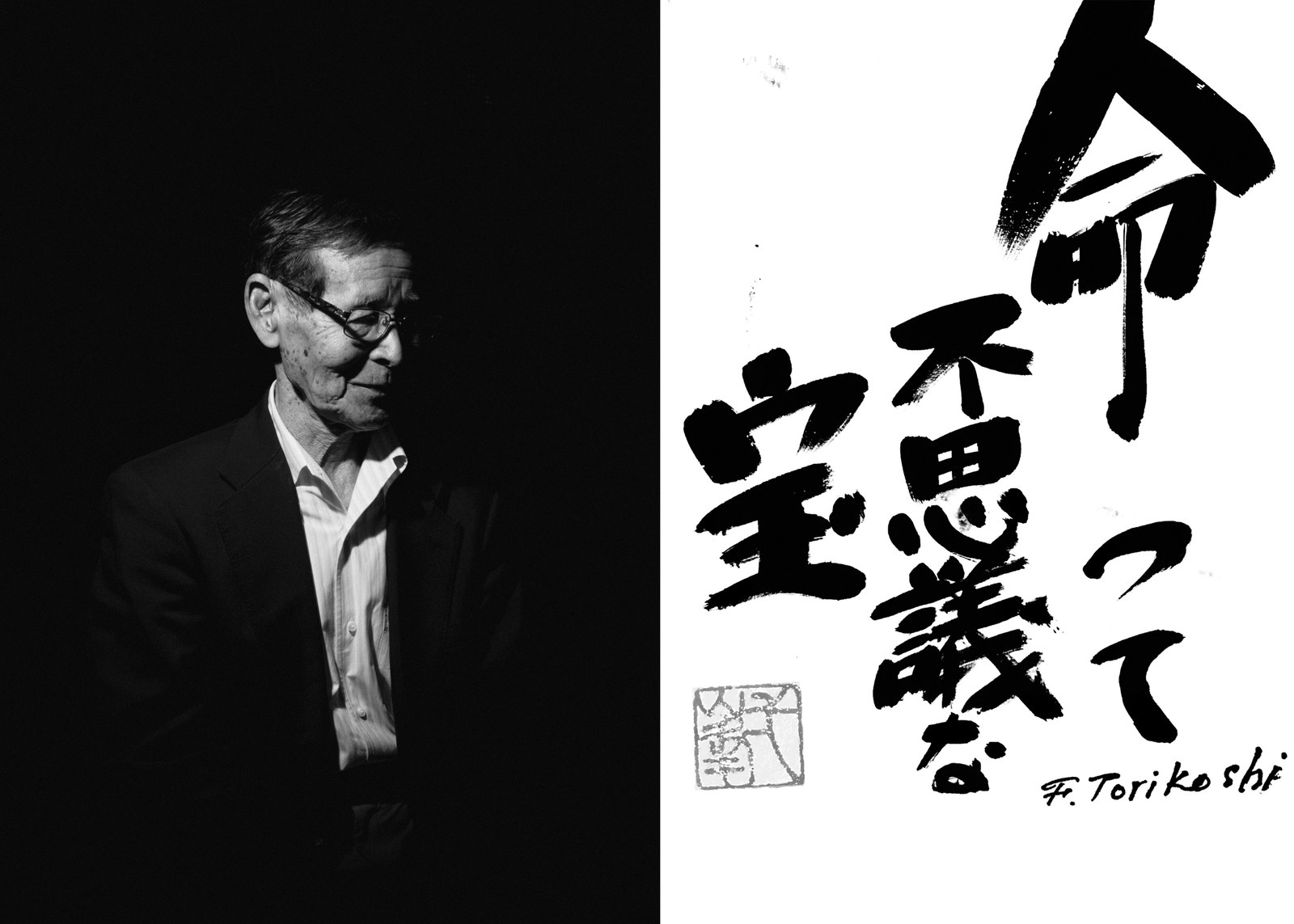
Life is a curious treasure.
Masakatsu Obata
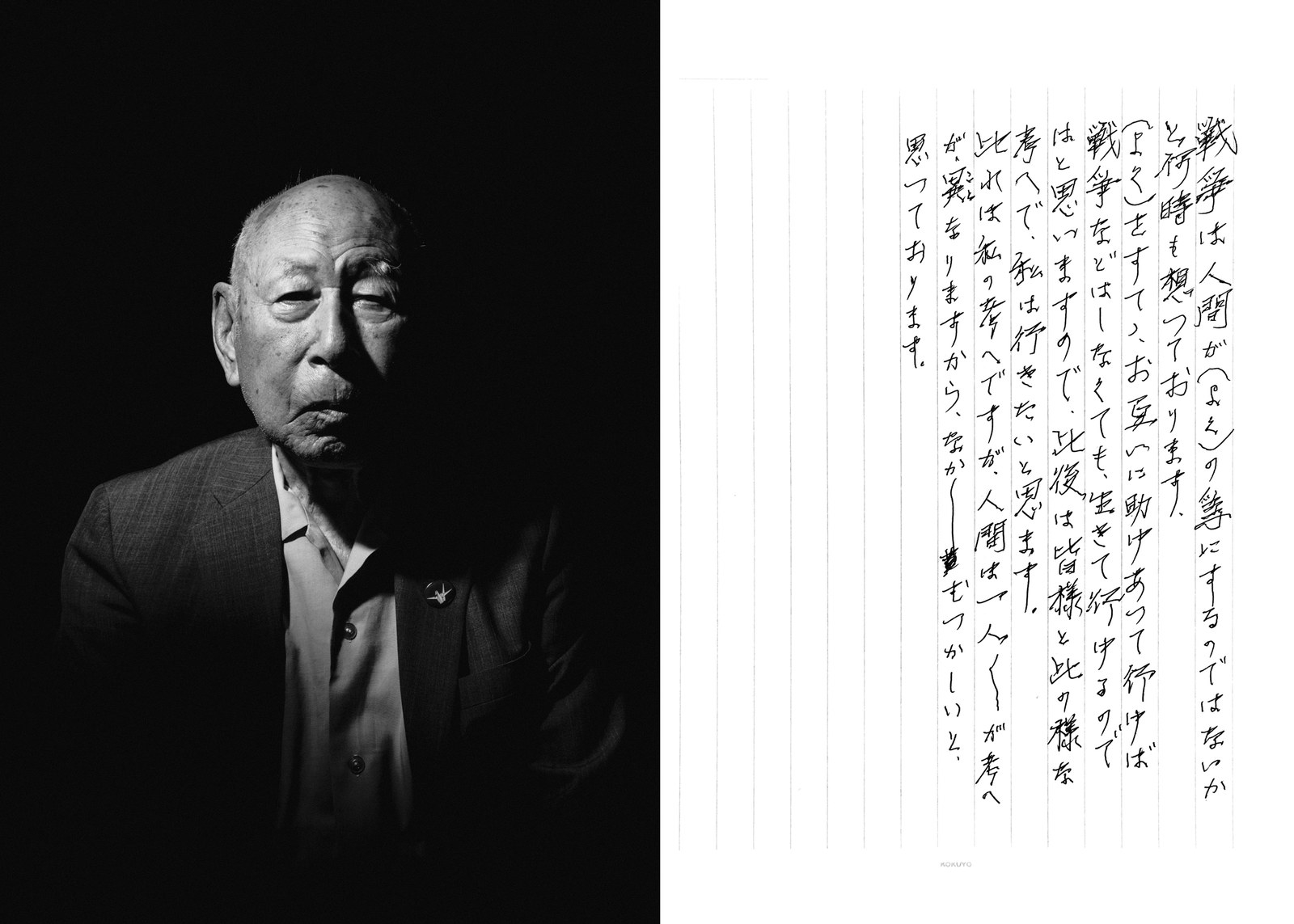
I often think that humans go into war to satisfy their greed.
If we rid ourselves of greed and help each other instead, I believe that we will be able to coexist without war. I hope to live on with everyone else, informed by this logic.
This is just a thought of mine — each person has differing thoughts and ideologies, which is what makes things challenging.
Kumiko Arakawa
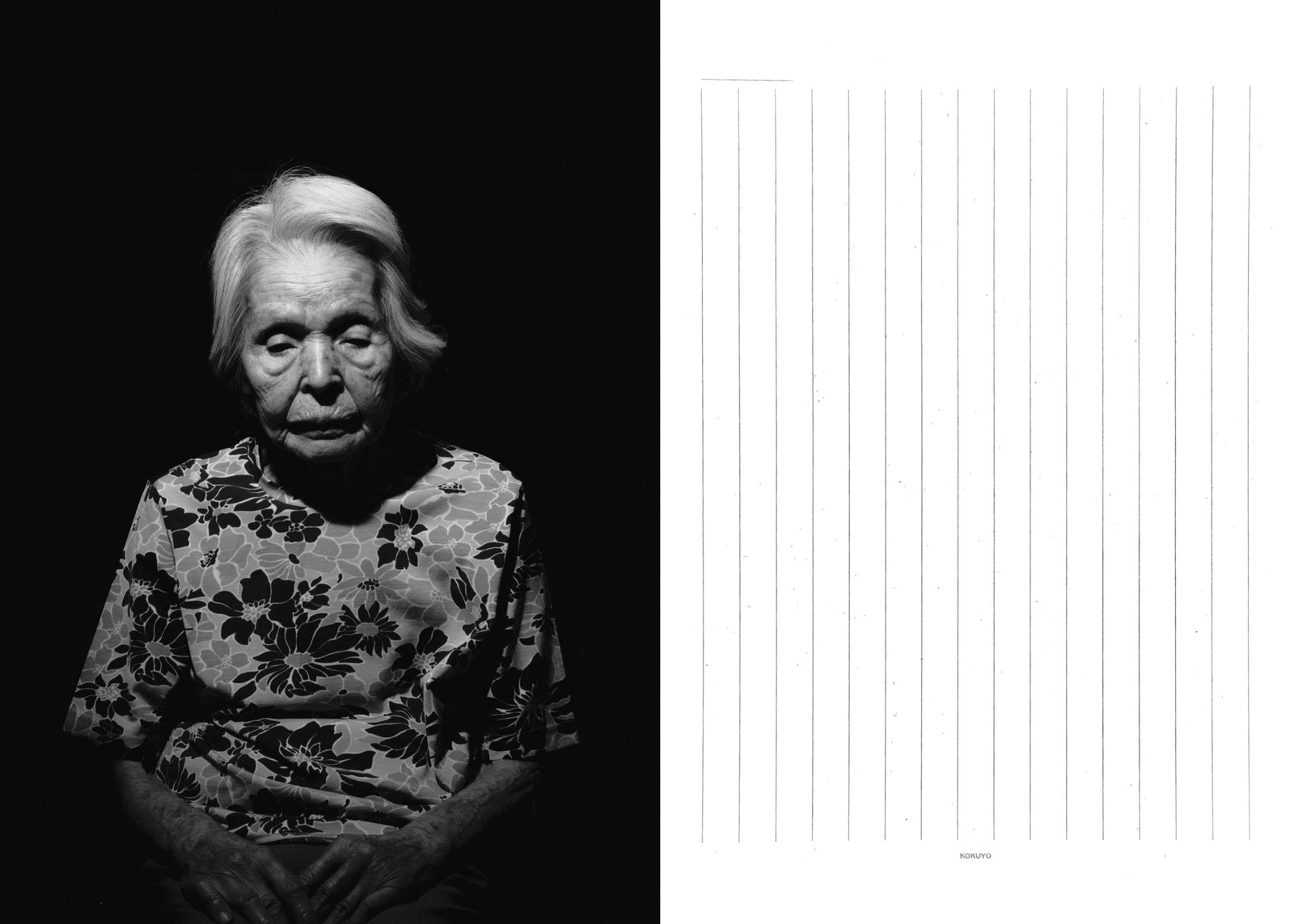
Arakawa has very little recollection of how she survived the bombing after Aug. 9; both of her parents and her four siblings were killed in the atomic bomb attack. When asked to write a message for future generations, she replied, “Nani mo omoitsukanai" (I can’t think of anything).
Jongkeun Lee
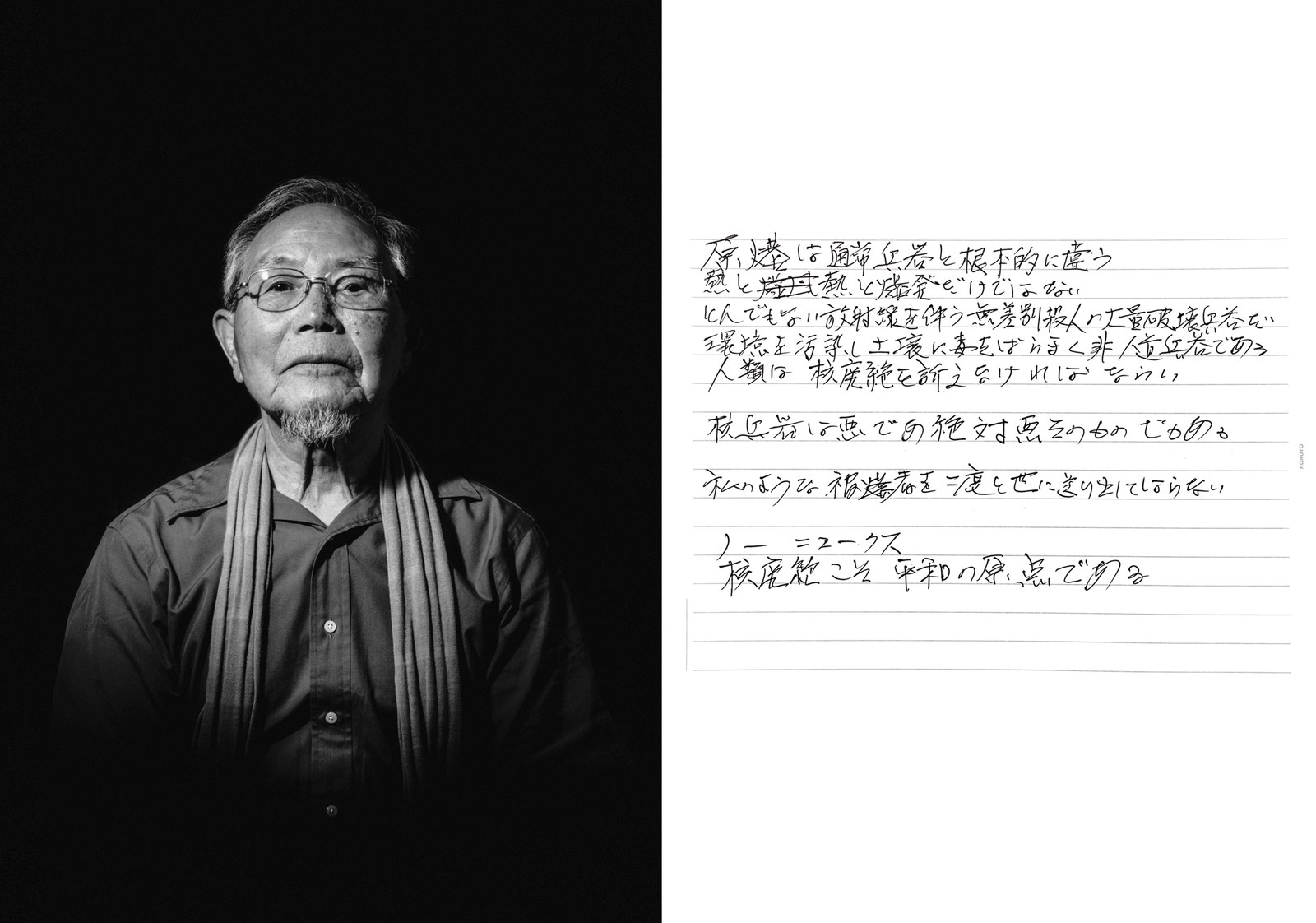
The atomic bomb is incomparable to other weapons. It not only involves heat and a deadly explosion, but also a lasting radiation that kills indiscriminately, en masse. It is an inhumane weapon that contaminates our soil and destroys our environment. Humanity must fight for the abolition of all nuclear weapons.
Nuclear weapons are the sheer manifestation of evil.
We must never create atomic bomb victims like myself, ever again.
No nukes. Nuclear abolition is the origin of peace.
Yoshiro Yamawaki
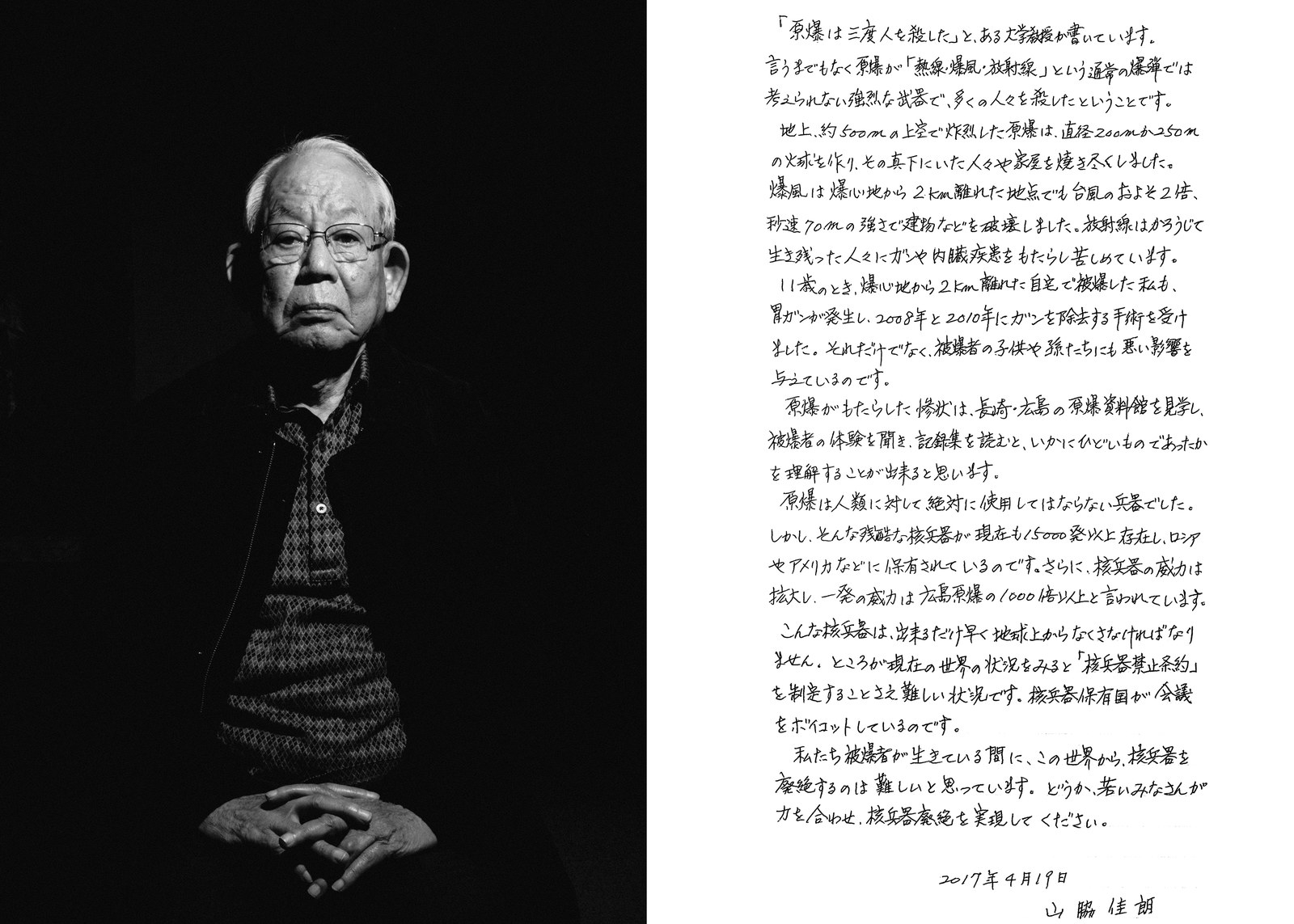
“The atom bomb killed victims three times," a college professor once said. Indeed, the nuclear blast has three components — heat, pressure wave, and radiation — and was unprecedented in its ability to kill en masse. ...
I was 11 years old when the bomb was dropped, 2 kilometers from where I lived. In recent years, I was diagnosed with stomach cancer and underwent surgery in 2008 and 2010. The atomic bomb has also affected our children and grandchildren.
One can understand the horrors of nuclear warfare by visiting the atomic bomb museums in Hiroshima and Nagasaki, listening to firsthand accounts of hibakushas, and reading archival documents from that period.
Nuclear weapons should under no circumstances be used against humans. However, nuclear powers such as the US and Russia own stockpiles of nearly 15,000 nuclear weapons. Not only that, technological advances have given way to a new kind of bomb that can deliver a blast over 1,000 times that of the Hiroshima bombing.
Weapons of this capacity must be abolished from the Earth. However, in our current political climate we struggle to come to a consensus, and have yet to implement a ban on nuclear weapons. This is largely because nuclear powers are boycotting the agreement.
I have resigned to the fact that nuclear weapons will not be abolished during the lifetime of us first-generation hibakushas. I pray that younger generations will come together to work toward a world free of nuclear weapons.
Mitsuto Terakawa
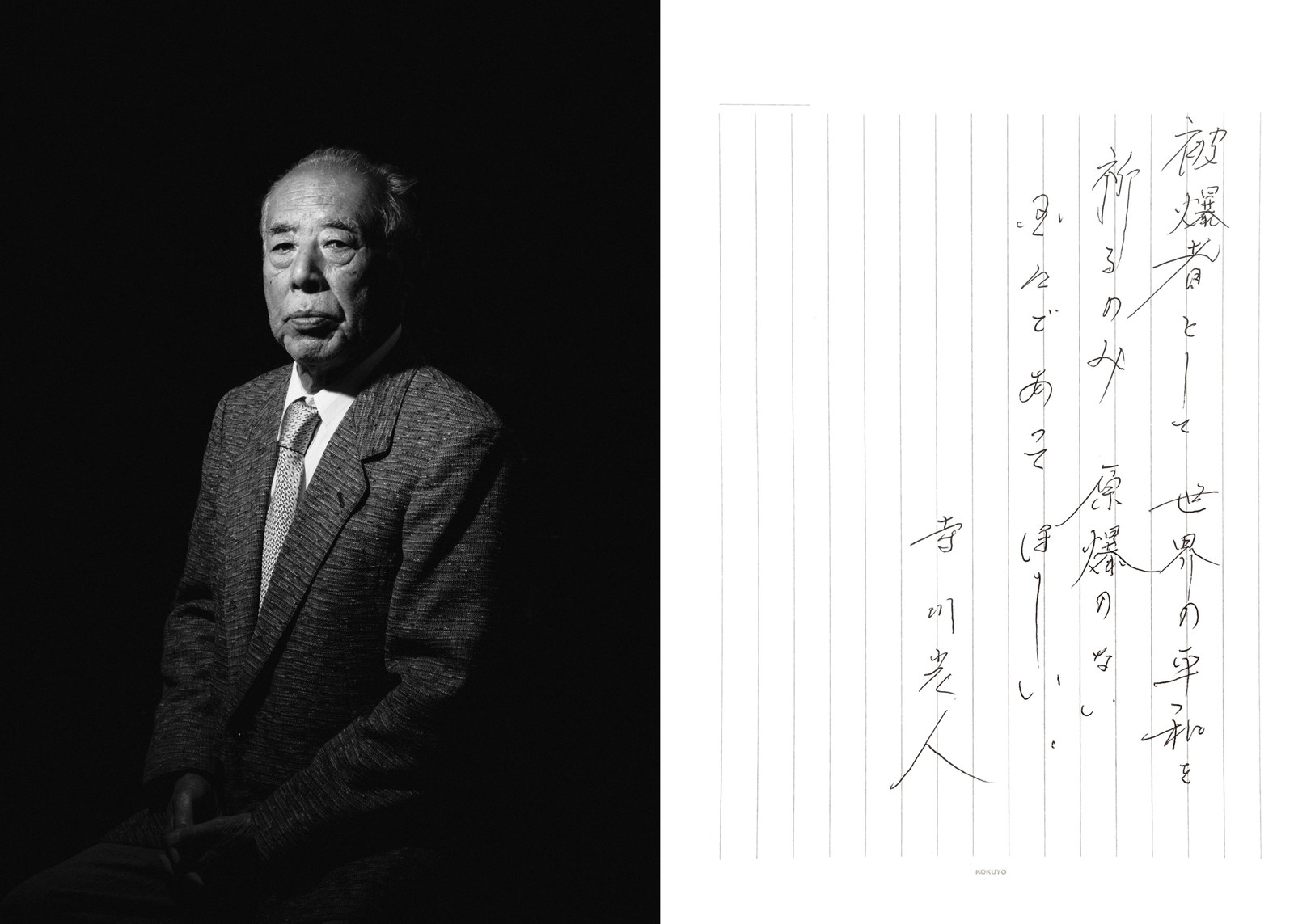
As a hibakusha, all I can do is pray for world peace. May we live the rest of our days with no nuclear war.
Emiko Okada
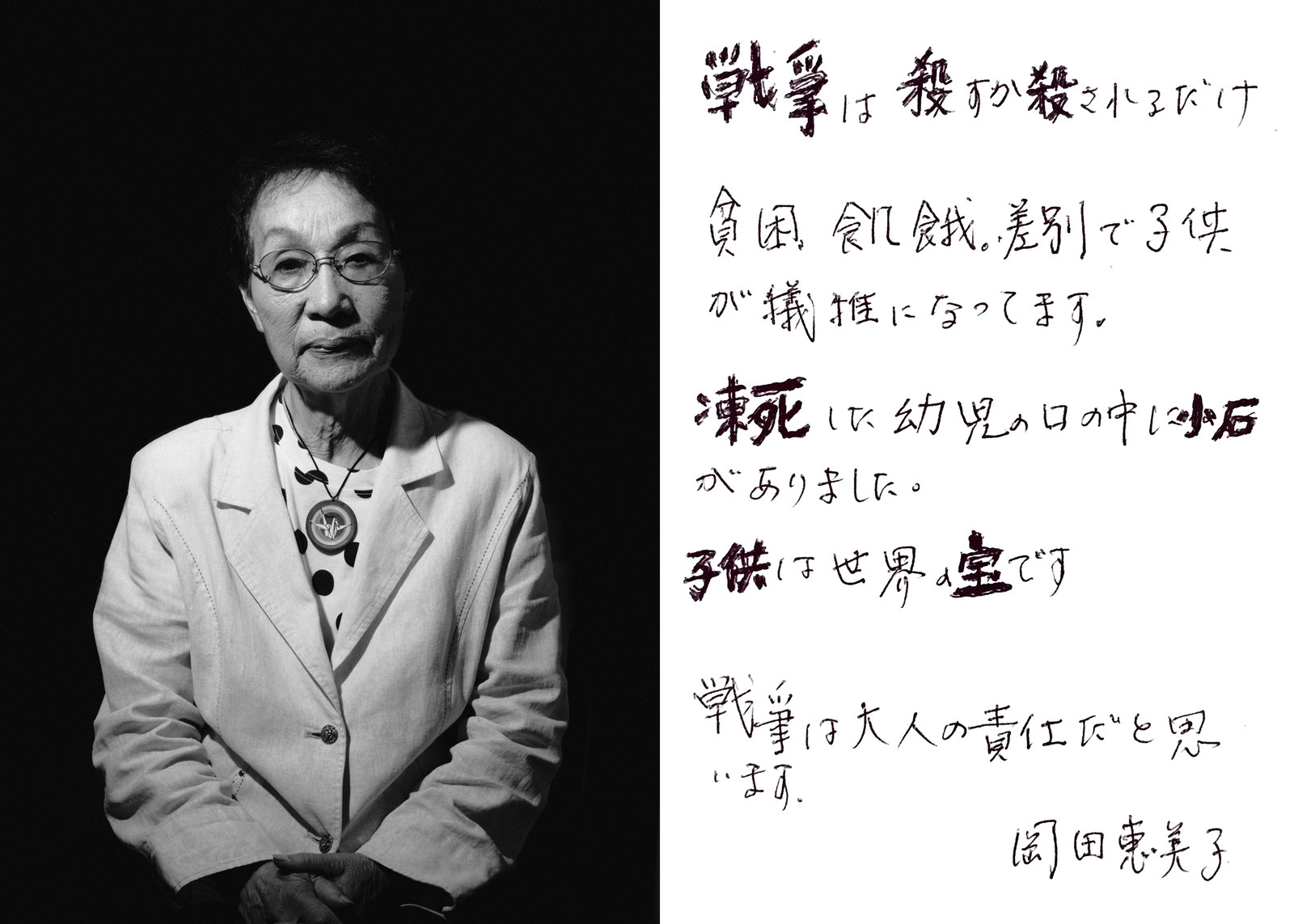
War is one of two things: Either you kill, or get killed.
Many children are victimized by poverty, malnutrition, and discrimination to this day.
I once encountered an infant who died of hypothermia. In its mouth was a small pebble.
Children are our greatest blessing.
I believe that grown-ups are responsible for war.
Ryouga Suwa
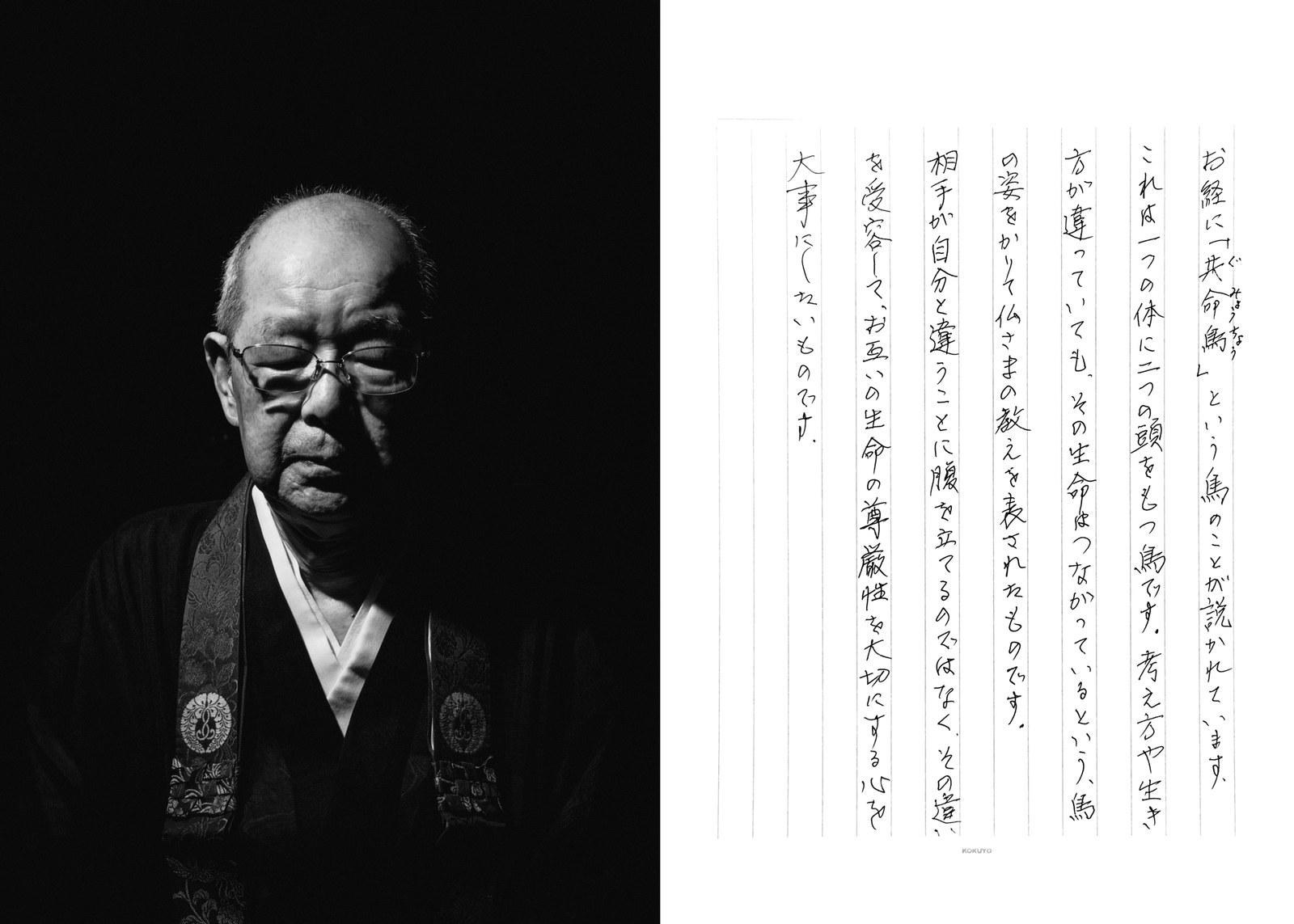
Within the Buddhist vernacular, there is a bird called the Gumyo. This bird has one body and two heads. Even if two entities have differing ideologies or philosophies, their lives are bound together by a single form — this is a Buddhist principle manifested in the form of a bird.
It would be ideal if we could all cultivate in us the ability to dignify each other instead of getting upset over our differences.
Takato Michishita
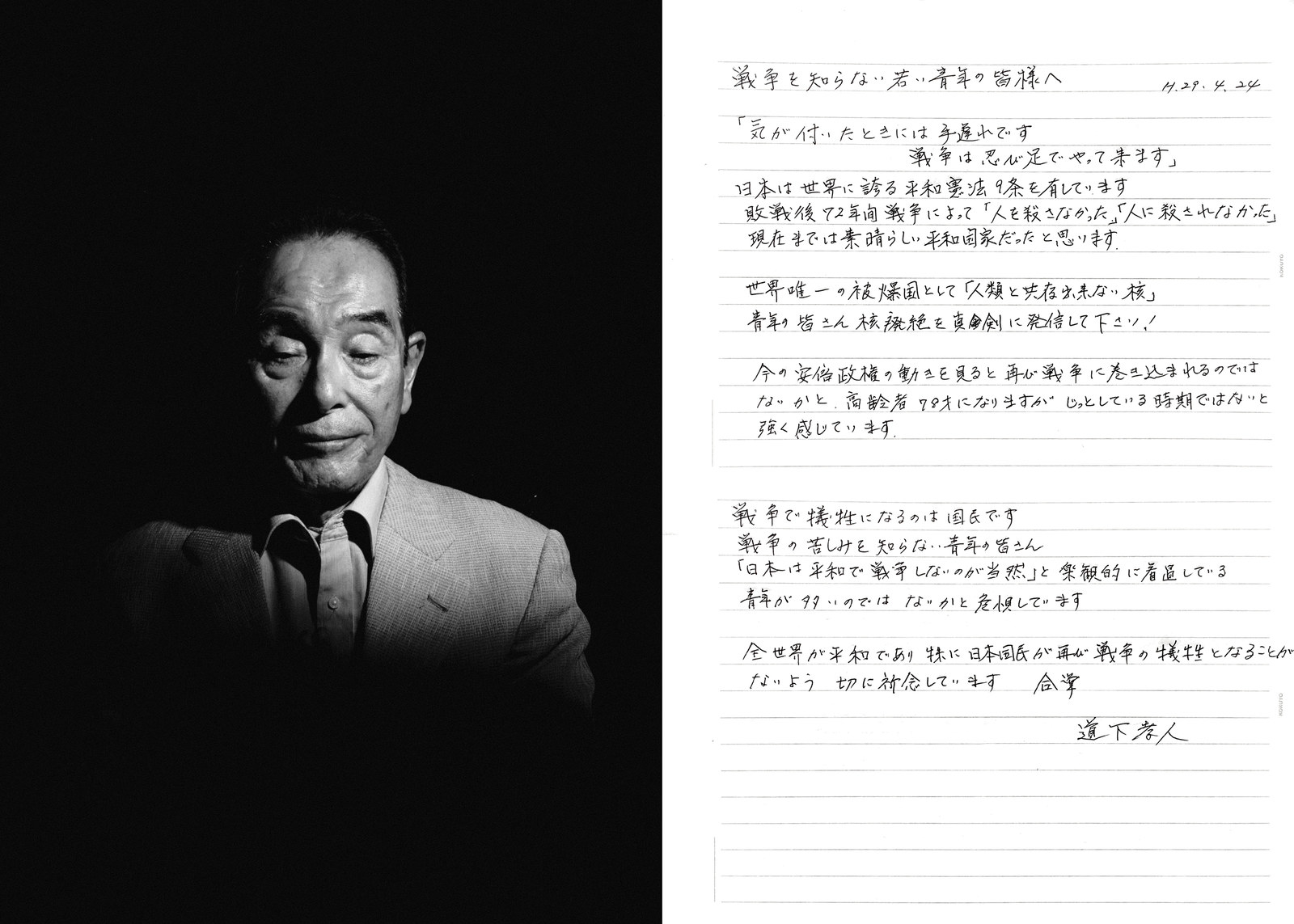
Dear young people who have never experienced war,
Wars begin covertly. If you sense it coming, it may be too late.
Within the Japanese Constitution you will find Article 9, the international peace clause. For the past 72 years, we have not maimed or been maimed by a single human being in the context of war. We have flourished as a peaceful nation.
Japan is the only nation that has experienced a nuclear attack. We must assert, with far more urgency, that nuclear weapons cannot coexist with mankind.
The current administration is slowly leading our nation to war, I’m afraid. At the ripe age of 78, I have taken it upon myself to speak out against nuclear proliferation. Now is not the time to stand idly by.
Average citizens are the primary victims of war, always. Dear young people who have never experienced the horrors of war — I fear that some of you may be taking this hard-earned peace for granted.
I pray for world peace. Furthermore, I pray that not a single Japanese citizen falls victim to the clutches of war, ever again. I pray, with all of my heart.
Shizuko Mitamura
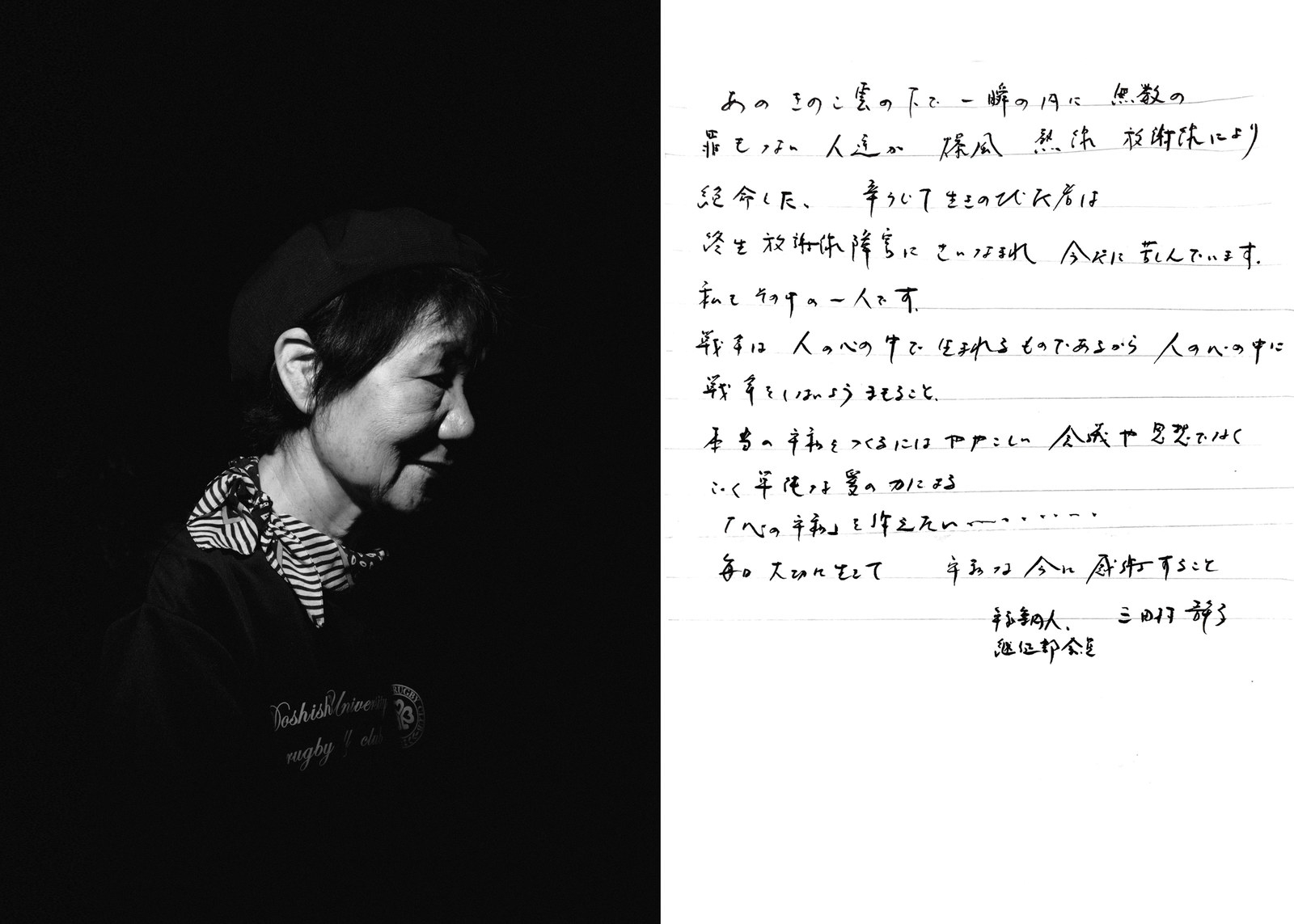
Under that mushroom cloud, in a single moment, countless innocent lives were consumed by a catastrophic air blast, heat wave, and radiation. Those who survived were ravaged by radiation-borne diseases and are suffering to this day.
I am one of these people.
War is conceived within the hearts of people; thus, it can also be prevented by the will of the people.
True peace is not achieved through complicated conventions or ideologies. I wish to cultivate "peace within" through simple gestures of love and kindness.
Please cherish each day that you are alive. Let us all appreciate the peace that we have at present.
Hiroaki Kawasaki
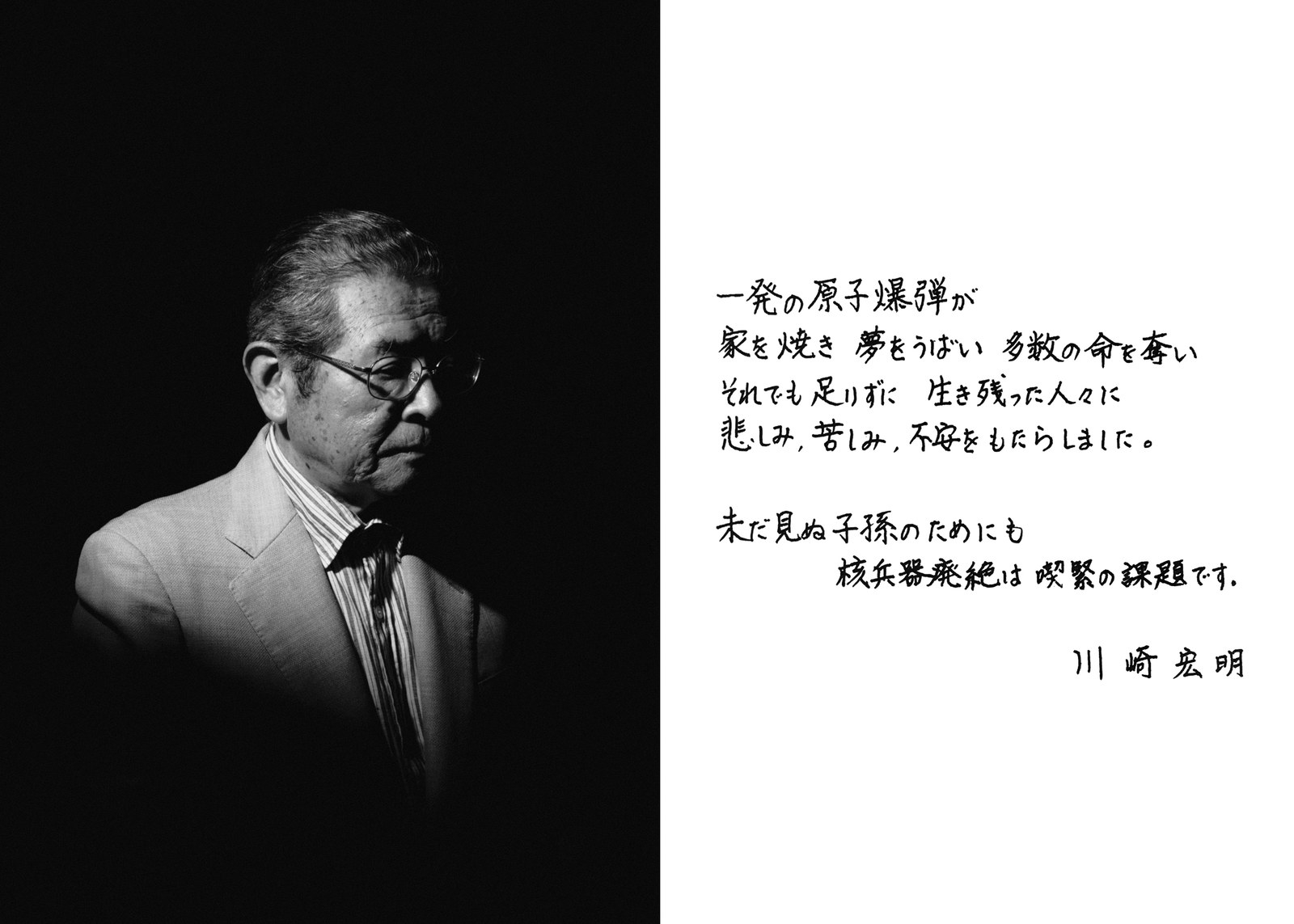
A single atomic bomb
scalded homes, shattered dreams, took many, many lives
and as if that weren’t enough
brought sorrow, suffering, and instability to those who survived.
For the sake of our children whom we have yet to meet
we must seriously consider the abolition of all nuclear weapons.
Sister Chiyoko Higashi
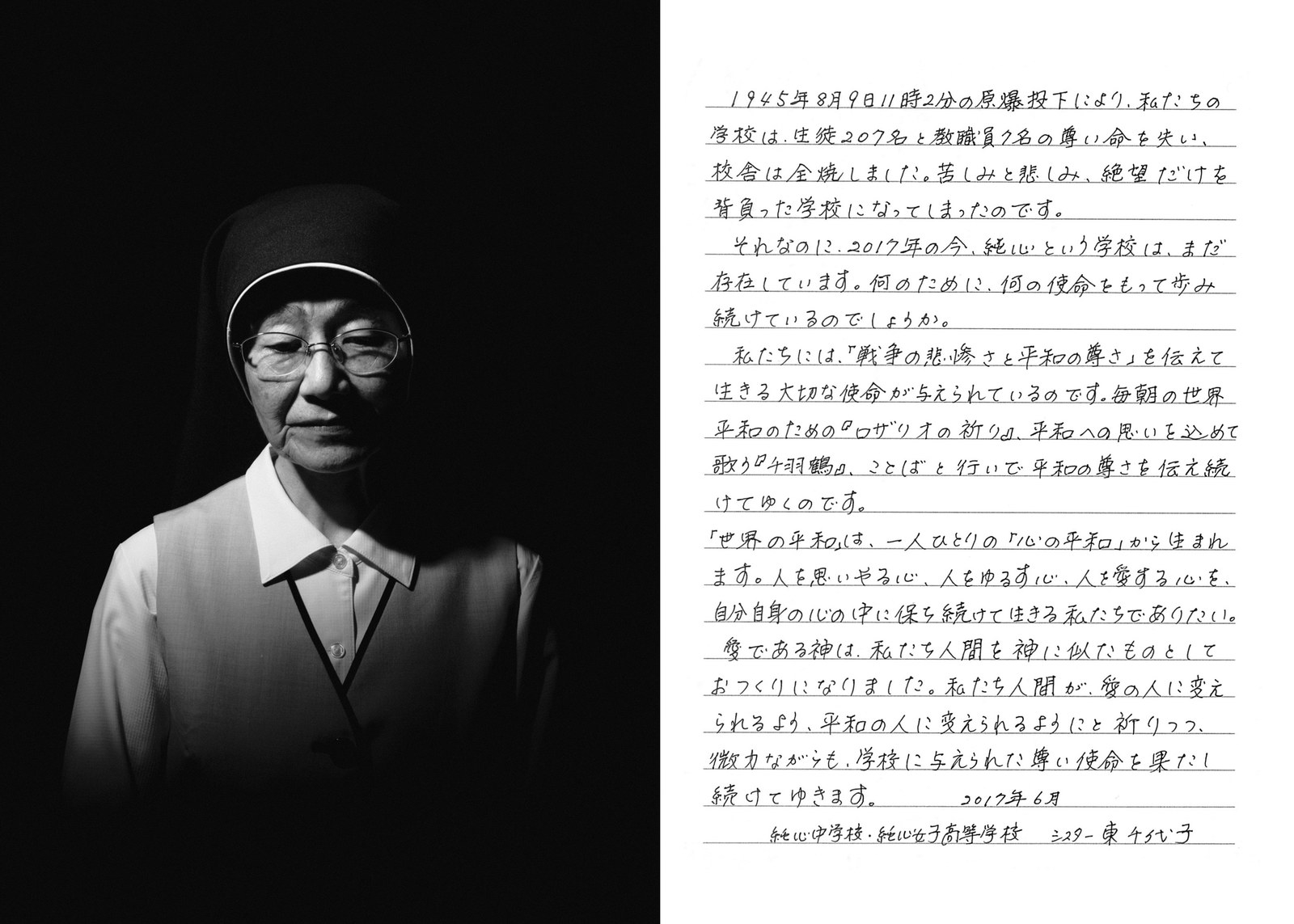
Due to the atomic bomb attack on Aug. 9 at 11:02 a.m., our school lost the precious lives of 207 students and seven staff members, and our campus was burned to the ground. Our school instantly became a pinnacle of pain and suffering, of hopelessness.
Still, our school, Junshin, has stood the test of time and exists to this day, in 2017. What do we stand for? What has been our duty for all of these years?
Indeed, we survivors are beholden to the responsibility to live on and tell these stories of war, and ultimately, communicate to others the virtue of peace. We do this by rising every morning for the Rosary prayer and by singing the Senbazuru hymn — both rituals and gestures that portray the dignity of peace.
World peace is derived from individual peace, or peace found within. The virtue of caring, the virtue of forgiving, the virtue of loving — we strive to cultivate and sustain all of these virtues within our own hearts.
God, the embodiment of love, has created all of us in his likeness. As we pray from day to day that we as humans are able to reconstruct ourselves to embody love and peace, we hope to do what little we can to continue fulfilling our cherished mission.
Sachiko Matsuo
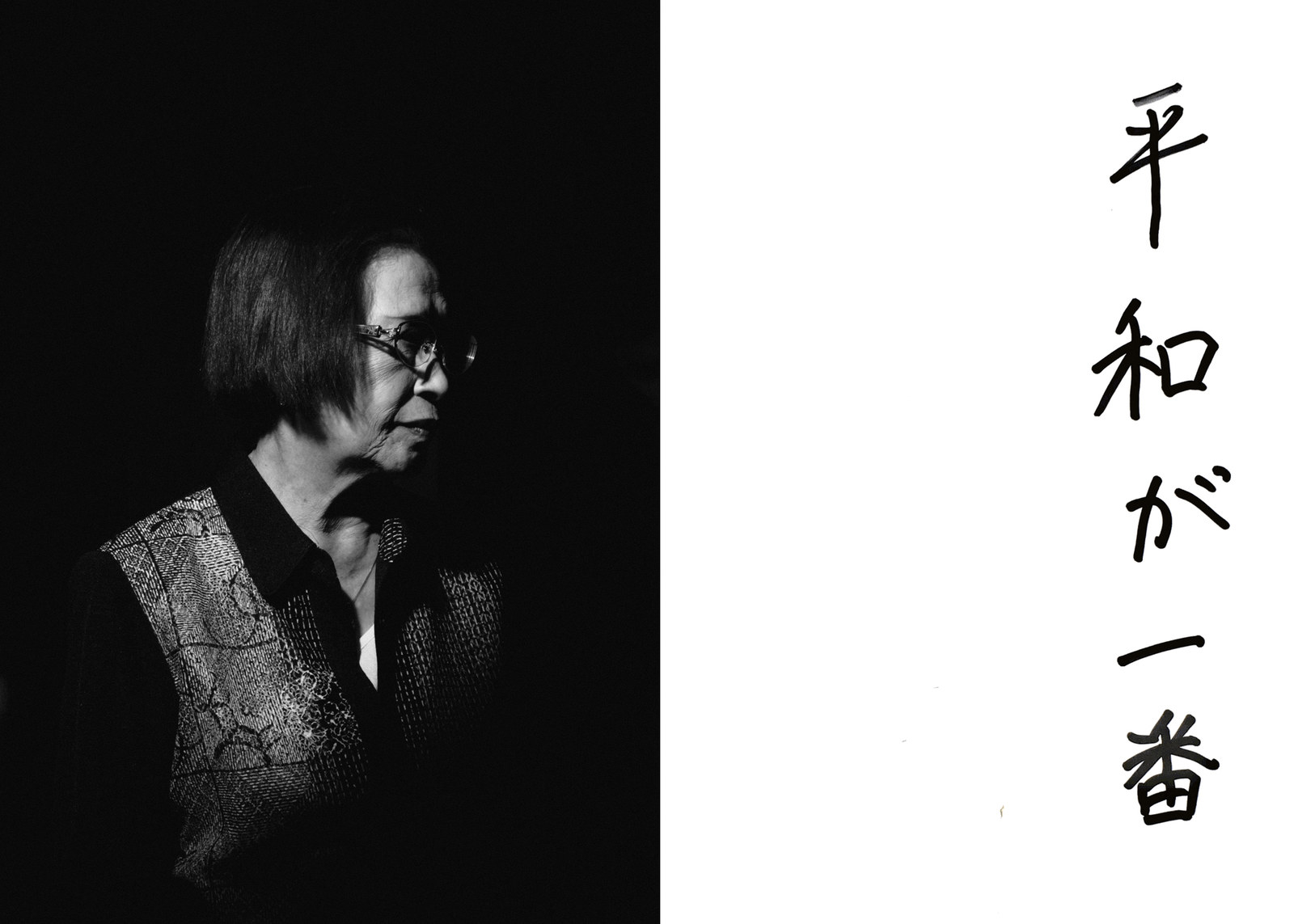
Peace is our number one priority.
Miyuki Kuroita
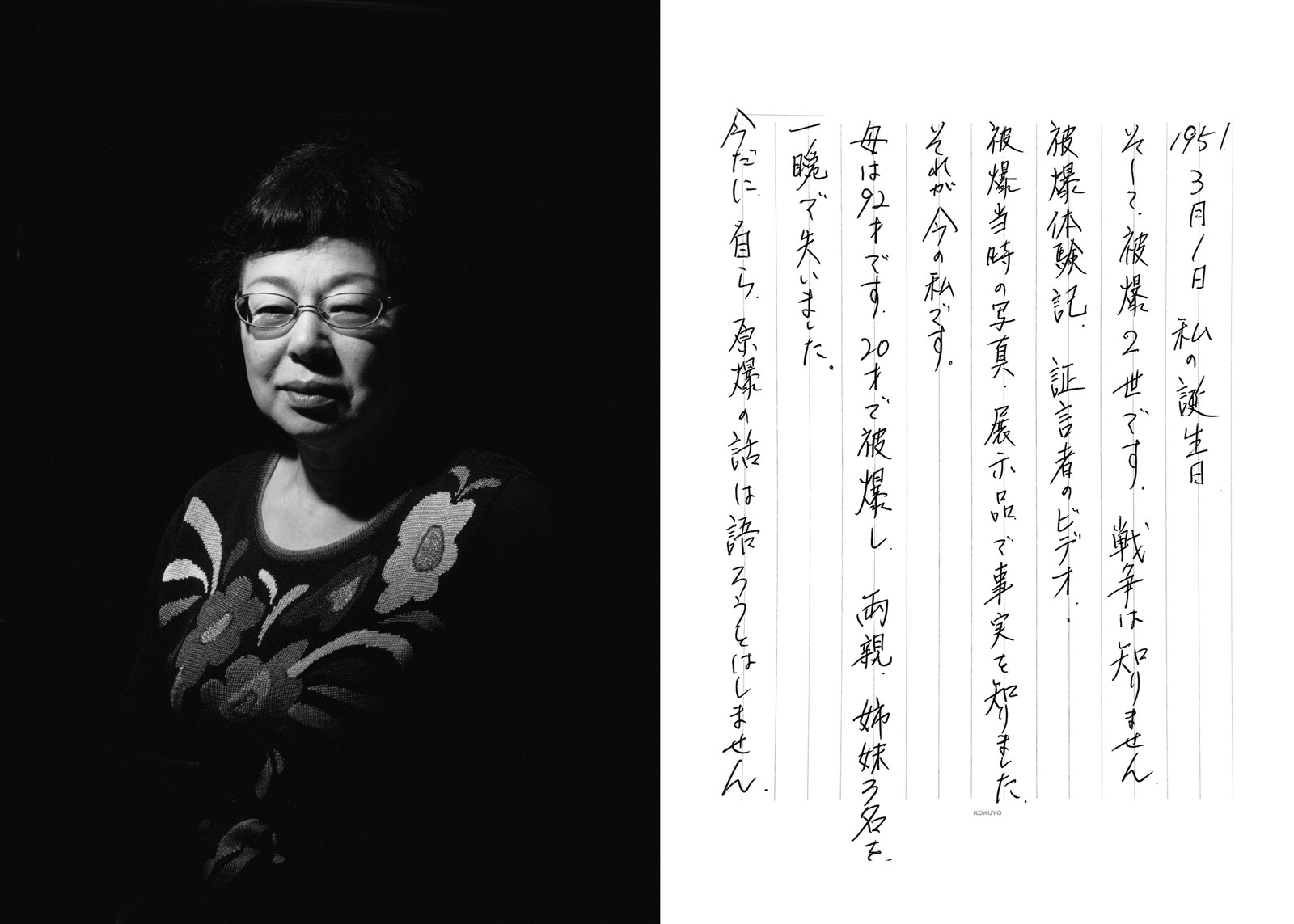
March 1, 1951, is my birthday.
I am also a second-generation hibakusha. I have never experienced war. I learned about the atomic bomb attack through hibakusha testimonies, video interviews, and photographs/artifacts from that time period.
That is my current situation.
My mother is 92 years old. She was exposed to the atomic bomb when she was 20, and lost both of her parents and three sisters in an instant.
Even to this day, she does not speak about the bombing.
Hideki Kuroita (right, with Kiharu)
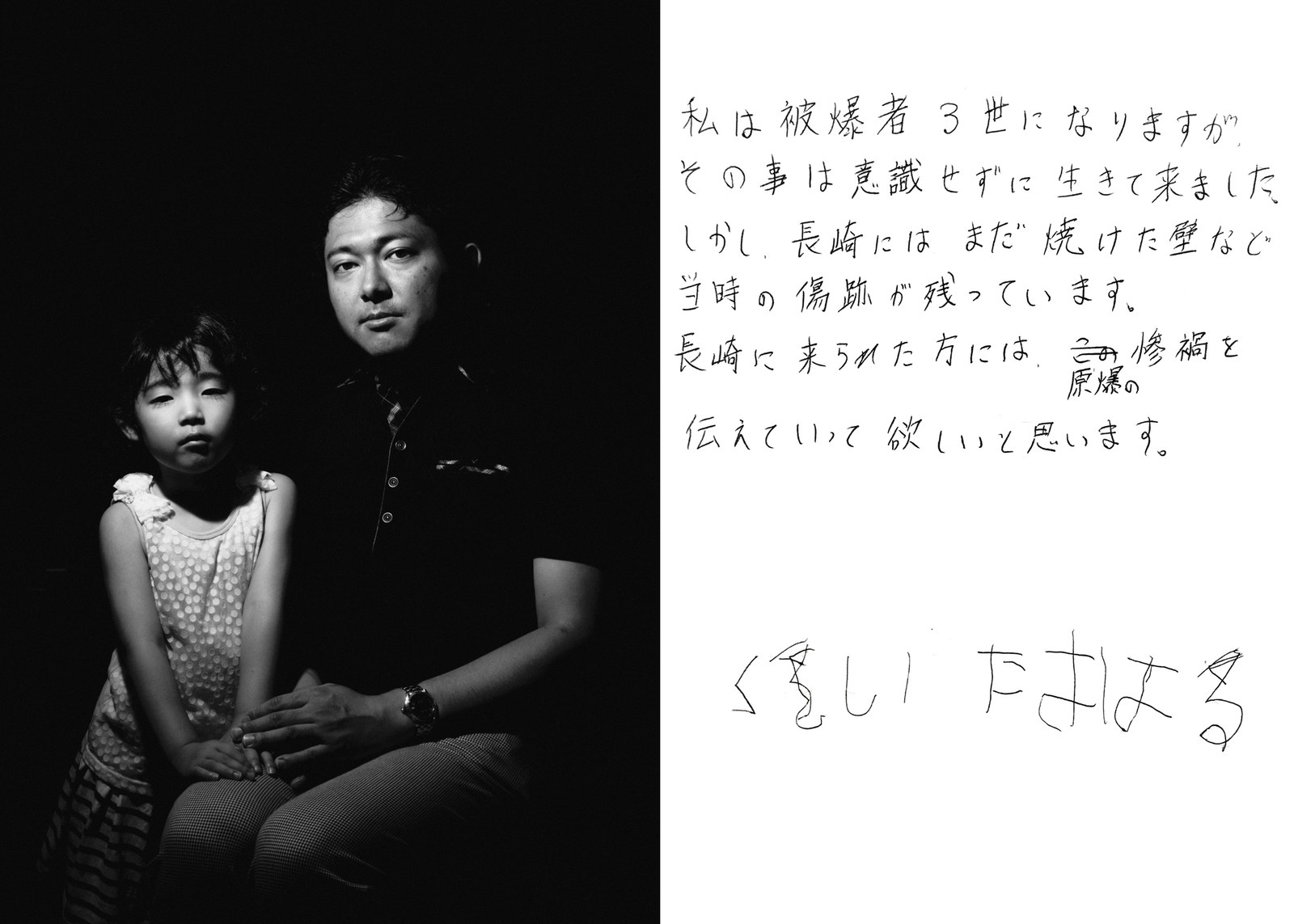
I am a third-generation hibakusha; however, I have not been very cognizant of this throughout my life. Still, there are visible scars all over Nagasaki from the time of the bombing, such as charred walls. I hope that visitors to Nagasaki will pass on the stories of terror involving the atomic bomb.
Akito Kawamoto
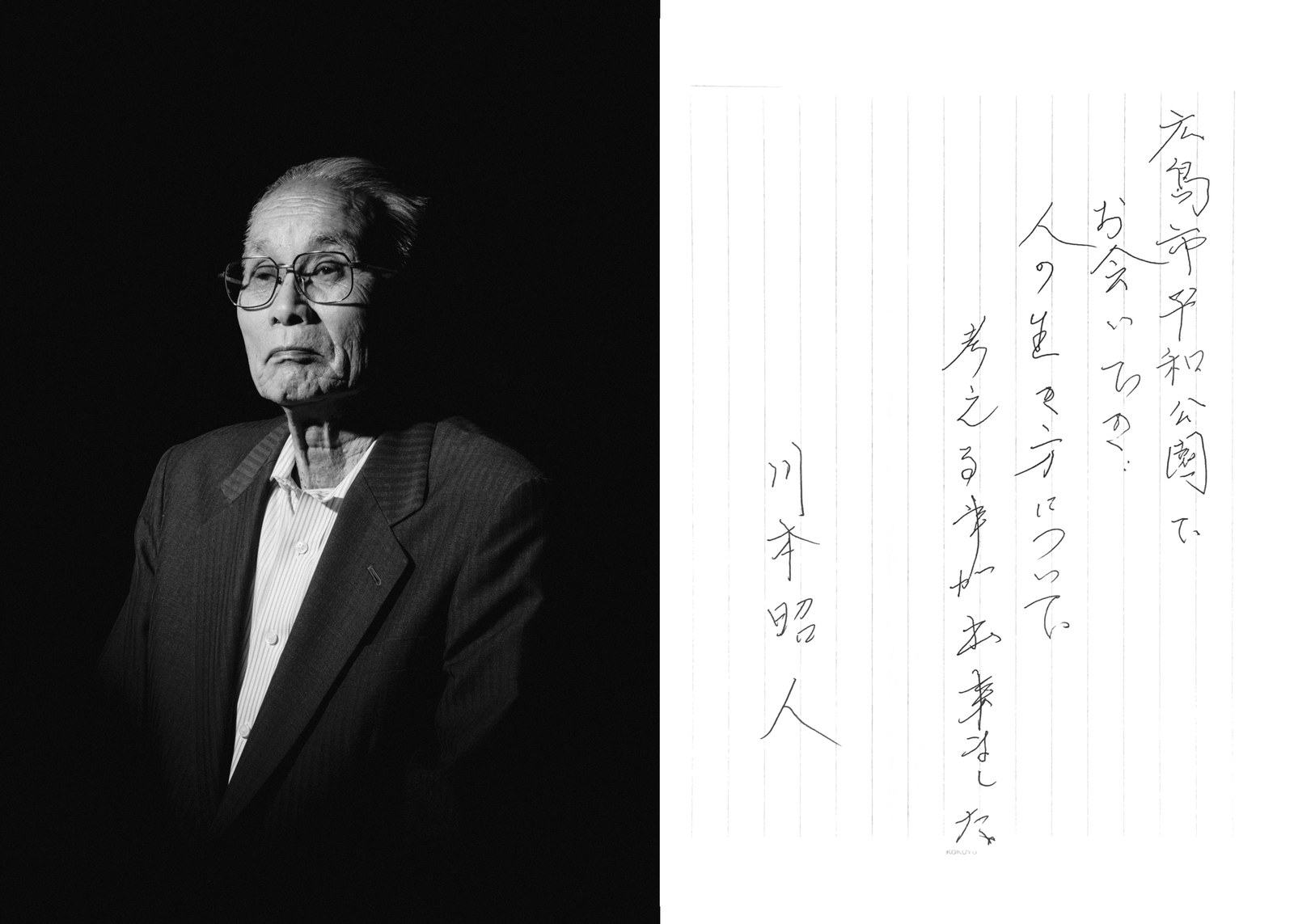
Through meeting [members of the future generation] at Hiroshima Peace Memorial Park, I have been able to contemplate people and their way of life.
This post was translated from Japanese.
